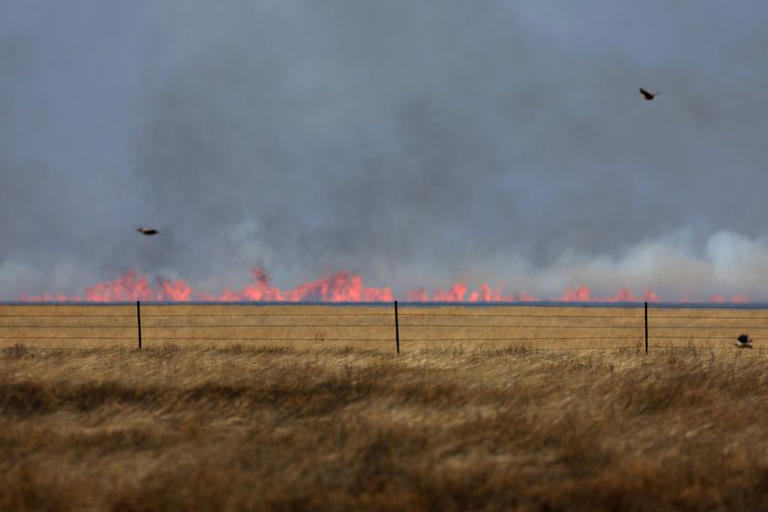Amid escalating concerns over the climate crisis, the World Meteorological Organization WMO has issued a “Red Alert” as global temperatures soared to unprecedented levels in 2023. The latest report from the WMO underscores the alarming reality that every major global climate record was shattered last year, setting the stage for potentially worsening conditions in 2024 and beyond.
According to the WMO’s annual State of the Global Climate report, 2023 saw average temperatures rise to the highest level in 174 years of record-keeping, surpassing pre-industrial levels by a significant margin of 1.45 degrees Celsius. This alarming trend is further exacerbated by soaring ocean temperatures, which reached their warmest levels in 65 years, leading to widespread heatwave conditions across more than 90% of the world’s seas.
The consequences of this unprecedented warming are dire, with devastating impacts on ecosystems, food systems, and sea ice dynamics. WMO Secretary-General Celeste Saulo has expressed particular concern about the rapid loss of sea ice in Antarctica, glacier retreat, and the unprecedented warmth of the oceans. These developments not only pose immediate threats to vulnerable ecosystems but also have long-term implications for global climate stability.
Of particular concern is the phenomenon of ocean heat, which Saulo describes as “almost irreversible” due to water’s ability to retain heat over extended periods. This poses significant challenges for mitigation efforts and underscores the urgent need for decisive action to curb greenhouse gas emissions and limit further warming of the planet.
The report highlights the role of human activities, particularly the burning of fossil fuels, in driving climate change and exacerbating extreme weather events. The emergence of the natural El Niño climate pattern further amplified the impacts of climate change, pushing global temperatures into record territory.
Looking ahead, the WMO warns of the likelihood of continued warming in 2024, with a “high probability” of setting new heat records. The cyclical nature of the El Niño phenomenon suggests that temperatures may remain elevated, further intensifying the impacts of climate change on vulnerable communities and ecosystems worldwide.
In response to these alarming trends, urgent and concerted action is needed at both national and international levels to mitigate the impacts of climate change and build resilience to its effects. This includes accelerating the transition to renewable energy sources, implementing robust climate adaptation measures, and enhancing global cooperation to address the root causes of climate change.
The WMO’s “Red Alert” serves as a stark reminder of the urgent need for decisive action to confront the climate crisis and safeguard the future of our planet. Failure to act swiftly and decisively risks irreversible damage to ecosystems, economies, and societies worldwide, underscoring the imperative of prioritizing climate action at the highest levels of government and society.
In conclusion, the alarming findings of the WMO’s report underscore the urgent need for bold and ambitious action to address the climate crisis. With the window of opportunity rapidly closing, the time to act is now to secure a sustainable and resilient future for generations to come.
